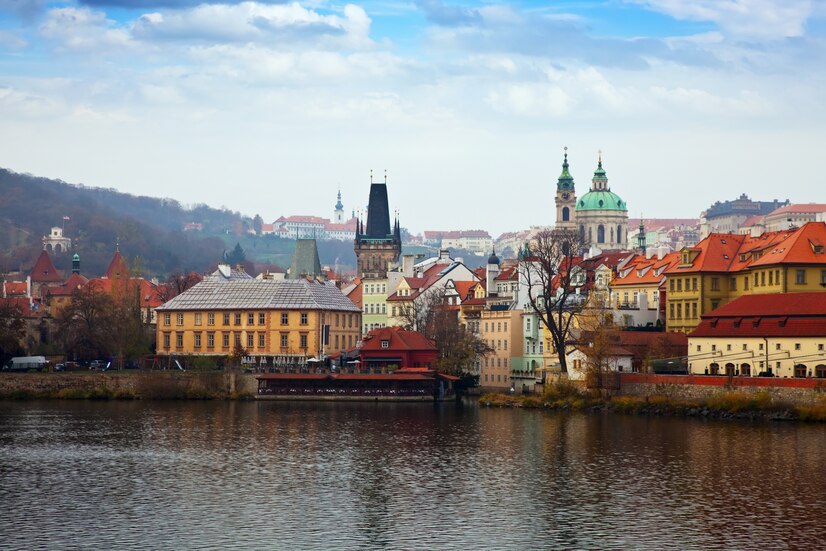Ireland offers stimulating job options with outstanding work-life balance, capable leadership, benefits for employees, and high-caliber work. It can be helpful to familiarize yourself with Irish work culture, lifestyle, and job application procedures if you’re planning to apply for a job there.
This article covers a variety of topics, including what it’s like to work in Ireland, and a comprehensive guide on how to find work in Ireland.

Table of Contents
What Is It Like to Work in Ireland?
If you want to work in Ireland, you should familiarize yourself with the employment market, labor laws, workplace culture, and the application procedure.
Companies in Ireland value their employees and offer flexible work schedules. They also offer extra advantages, including health insurance, pension plans, paid time off, and benefits for caring for others. They also promote teamwork, candid feedback from employees, and open communication.
Additionally, Ireland’s typical workday is forty hours long, while many professions need longer workweeks with overtime compensation. Typically, work hours are from 9 a.m. to 5 p.m.
Furthermore, there are numerous outdoor pursuits, like hiking, sailing, golfing, and mountaineering, available in Ireland. It also promotes literature, the arts, dancing, music, and cultural activities. If you are interested in these pursuits and would like to learn more about a multicultural and outdoor lifestyle, Ireland is a good place to pursue your career aspirations.
What are the Language Requirements For Working In Ireland?
Ireland’s national languages are Irish and English. To communicate and engage with coworkers and clients, employers in Ireland require you to have native English skills. Additionally, passing English language proficiency exams like the International English Language Testing System (IELTS) with a minimum score is required. Fluency in Irish may be necessary for several positions in customer service and hospitality.
In-demand Jobs In Ireland
The following are some in-demand career fields in Ireland:
Computer hardware and software: In order to boost corporate operations and support the nation’s digital innovation, Ireland is seeing a growing need for qualified IT personnel. Data analysts, system designers, software engineers, and IT project managers are a few of the in-demand IT positions.
Construction: Due to the need for new housing and infrastructure, there is a growing need for jobs in this industry. The positions of civil engineer, architect, site engineer, and structural engineer are among the most in-demand in this industry.
Health care: The goals of the health care industry are to adopt team-based treatment, increase patient happiness, and improve outpatient care. Experts in the fields of pediatrics, neonatology, neurology, and clinical pharmacology are in high demand.
Pharmaceuticals and medical devices: Ireland leads the world in this sector, and there is a large investment in R&D and expansion. Research and development scientists and quality assurance (QA) specialists are two in-demand positions in this industry.
How Do I Get a Job in Ireland?
Here are some steps to follow if you want to work in Ireland:
1. Research the job market.
Start by doing some research on the field and position that best suit your abilities, interests, background, and credentials. To find the ideal sector and function to fit your professional objectives, you can also get advice from a career counselor. You can further refine your search by using online job boards to target specific areas, industries, job types, and income ranges. To stay informed about job openings, you can also attend industry events, join relevant clubs and associations, and network with people in your sector via social media sites.
2. Research the requirements.
You can examine the job description supplied by the business to determine the abilities, credentials, and work history required for a position in Ireland. To find out whether your qualifications are being acknowledged, get in touch with the hiring manager or the employer.
You may also refer to the National Academic Recognition Information Centre(NARIC) website to download the compatibility statement and compare your credentials with an Irish qualification of a comparable type and degree. If the database does not contain your qualifications, you can ask the authorities to create a general comparability statement for you to use during the interview process.
It could also be necessary for your professional qualifications to be recognized for some regulated professions, like those of teacher, architect, doctor, and accountant. This is because employment in Ireland values both education and real-world experience. To have your professional qualifications recognized, get in touch with the relevant authorities for your sector and occupation. For instance, it is the duty of regulating organizations like Chartered Accountants Ireland to acknowledge the accounting credentials of applicants.
3. Prepare the documentation.
In order to have your qualifications acknowledged as part of this process, you must submit the following paperwork:
- Academic documents: This includes certificates, diplomas, and transcripts, which show your qualifications and grades.
- Proof of identity: This can include a passport or national identity card.
- Professional qualifications: This includes documents that provide evidence of your work experience, such as letters of recommendation or employment certificates.
4. Prepare your resume and cover letter.
Look closely at the job description to find terms related to abilities, work experience, and credentials. On your resume and cover letter, highlight the ones that complement your skill set and work history. It is also a good idea to include a succinct professional synopsis that highlights your accomplishments, job history, and key competencies.
You can highlight the importance of your effort by summarizing your accomplishments using powerful action verbs and measurable outcomes. Employers in Ireland also pay attention to a candidate’s hobbies and accomplishments. Add a section detailing your pastimes and interests. Your resume should not be longer than three pages.
You can include your academic credentials, research projects you participated in, academic honors or prizes, personal projects, volunteer work, or other experiences if you’re a recent graduate without any employment experience.
5. Submit your application.
Your application and supporting materials can be submitted online. Your application must be submitted for a charge, which varies according to the industry, profession, and evaluation difficulty. Up to four months may pass during the process.
6. Apply for a work permit.
A letter of employment offer, proof of qualifications, and work history are among the pieces of paperwork required for an employment permit. To apply for an employment permit, you or your employer may do so. The application will be processed in approximately eight weeks. The Department of Enterprise, Trade, and Employment states that as of 2023, Ireland grants a variety of work permits, including:
- General Employment Permit: This is available to people with a job offer from an Irish employer in a role with a salary of at least €30,000 per year.
- Intra-Company Transfer Permit: This allows employees of multinational companies to transfer to an Irish branch or subsidiary. To be eligible for this permit, you must possess a specific set of abilities and experience in addition to having worked for the company for a minimum of six months.
Read Also:
10 Scholarships in Ireland for International Students
How to Study in Ireland Without IELTS in 2024
Study and Work in Ireland – What You Should Know









